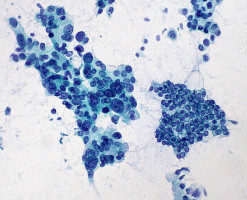
Immodulon Therapeutics Ltd have announced the latest five year survival results in patients with metastatic melanoma receiving IMM-101 (a bacterially derived systemic immunomodulator administered intradermally).
The findings were presented by Prof Angus Dalgleish, Principal Investigator of one of the trials, at ESMO Symposium on Immuno-Oncology.
Data released by Immodulon in January 2015 from a randomised, Phase II study of IMM-101 with gemcitabine in patients with advanced metastatic pancreatic cancer, showed significant improvements in overall survival (OS) and progression free survival (PFS) compared to gemcitabine alone.
As such, IMM-101 was the first immunotherapy candidate to show a synergistic effect with chemotherapy when given first line in metastatic pancreatic cancer patients.
The latest results to be presented at ESMO’s Symposium indicate that IMM-101 may have the potential to be effective in tumour types other than pancreatic cancer.
Eighteen patients completed the original Phase I trial of IMM-101 in 2010 and, following a period of receiving IMM-101 on a named patient basis, ten patients entered an open-label, long-term follow-up study between February and June 2012.
Six of these patients, all with Stage IV disease when entering the long-term follow-up study, are alive and still being treated with IMM-101.
“These results are hugely encouraging,” said Prof Angus Dalgleish, Principal Investigator of the long- term follow-up study.
“They suggest that IMM-101 could be an effective first line treatment option for different types of metastatic cancers, which is a considerable step forward. I am particularly interested in the complete response seen in the patient who received IMM-101 and then the anti-CTLA-4 antibody, ipilumumab, as this supports a view I have held for some time; that priming with an immunomodulator such as IMM-101 followed by administration of a checkpoint inhibitor may be a particularly efficacious combination. It certainly merits further research in a controlled setting.”
Dr Kevin Bilyard, Immodulon Therapeutics CEO, commented: “Although the checkpoint inhibitors have improved the outlook for patients with various malignancies, including metastatic melanoma, there remains a need for cancer treatments which contribute to extended survival without additional toxicity. Results from this small study of patients with advanced melanoma, together with those from the previously reported IMAGE 1 randomised phase II study in advanced pancreatic cancer, suggest IMM- 101 may offer that potential.”
IMM-101 has been granted Orphan Drug Designation in the US and EU for the treatment of pancreatic cancer and is expected to enter Phase III clinical trials in 2016.
Source: Immodulon Therapeutics Ltd
We are an independent charity and are not backed by a large company or society. We raise every penny ourselves to improve the standards of cancer care through education. You can help us continue our work to address inequalities in cancer care by making a donation.
Any donation, however small, contributes directly towards the costs of creating and sharing free oncology education.
Together we can get better outcomes for patients by tackling global inequalities in access to the results of cancer research.
Thank you for your support.